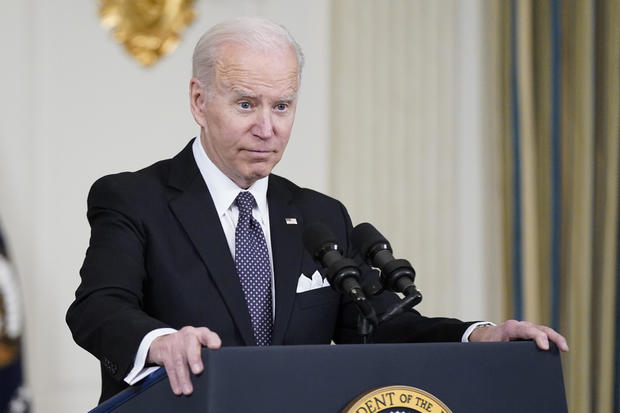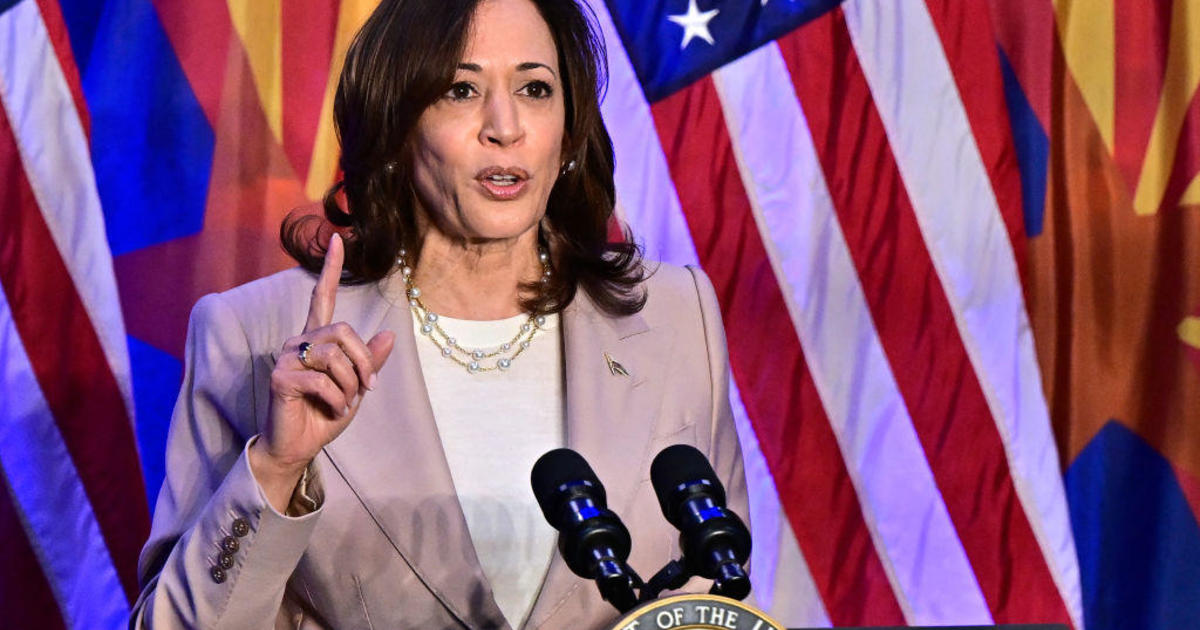White House unveils 2023 federal budget, calls for new spending aimed at reducing crime, unclogging supply chains and a tax on billionaires
The Biden administration on Monday unveiled the president's budget proposal for 2023, totaling more than $5.7 trillion in spending and including a new tax on billionaires as the president looks to lower the deficit moving forward. In it, President Biden lays out his priorities for the coming year, which could be pivotal heading into the midterm election. This is the first step in the lengthy budget process and comes just weeks after Congress passed the omnibus spending bill for the rest of 2022.
"My dad had an expression, he said 'don't tell me what you value. Show me your budget — I'll tell you what you value,'" Mr. Biden said Monday. "Don't tell me what you value — show me your budget and I'll tell you what you value. Well the budget I'm releasing today sends a clear message to the American people what we value. First, fiscal responsibility. Second, safety and security and thirdly, investments needed to build a better America."
The president said his budget sends a "clear message that we value fiscal responsibility, safety and security at home and around the world, and the investments needed to continue our equitable growth and build a better America." In remarks Monday, Mr. Biden particularly blasted his predecessor's "fiscal mismanagement," and said his administration is "reducing the Trump deficits."
Last year, the economy grew by a record 5.7% as the U.S. added more than 6.5 million jobs as the United States digs out from the coronavirus pandemic. But the country has been hit with the fastest inflation in 40 years, with prices up 7.9% from one year ago, and the national debt topped $30 trillion for the first time in history this year.
In the budget proposal, the Biden administration calls for new spending it claims will spur economic growth and create jobs while also calling for a series of tax reforms. Overall, the Biden administration projects its budget will reduce the deficit by more than $1 trillion over the next decade.
As part of its effort to reduce the deficit, the administration is proposing a Billionaire Minimum Income Tax, which would require households with more than $100 million pay 20% on their total income per year. The administration claims that alone would reduce the deficit by $360 billion over a decade. The president is also calling for tax on the top income bracket to be raised to 39.6% from 37% and the corporate tax rate to be raised to 28% from 21%, reversing some of President Trump's tax law.
As talks with Congress continue on Mr. Biden's Building a Better America agenda, which includes priorities once part of the Build Back Better Act like affordable child care, combating climate change and cutting health care costs, the administration is proposing tax reforms to pay for those priorities, feeding a reserve fund so paying for that legislation would not add to the deficit.
"We've been clear, the president wants to sign legislation that cuts costs for families and reduces the deficit," said Office of Management and Budget Director Shalanda Young.
The Biden administration projects the deficit will be $1.3 trillion lower in 2022 than last year — the largest one-year decline in U.S. history, coming off massive spending to combat the coronavirus pandemic and economic fallout.
Some of the new spending proposed would go to efforts to reduce crime, such as $3.2 billion in discretionary resources for state and local grants for law enforcement and $30 billion in mandatory support for law enforcement, crime prevention and community policing.
"I've said it before — the answer is not to defund our police departments," Mr. Biden said. "It's to fund our police, and give them all the tools they need — training and foundation and partners and protectors that our communities need."
The Biden administration is also focused on efforts to tackle affordable housing with a $50 billion proposal for housing construction and supply to address the existing market gaps and help stabilize the housing market over the long term.
As the U.S. continues to face supply chain bottlenecks that have helped drive up costs across the country, the president is also looking to speed up the movement of goods through ports with $230 million for ports development and $1.7 billion for the Harbor Maintenance Trust Fund. Mr. Biden is also seeking an extra $125 million to help bolster domestic manufacturing. There is also $200 million for new solar manufacturing.
Meanwhile, as the U.S. and allies turn their focus on Russia for its invasion of Ukraine, the proposed budget also includes $6.9 billion for the European Deterrence Initiative, NATO, and other efforts to counter Russian aggression. The budget also calls for nearly $1 billion for the State Department, USAID, and Department of Defense in assistance to Ukraine.
While the president's proposal to tackle climate change was stalled in the Build Back Better Act, the budget calls for multiple provisions to combat climate change including $3.3 billion for green energy projects, $18 billion for climate resilience programs across the federal government, and $11 billion in international climate finance among other efforts.
Efforts to pass the president's budget will face challenges in Congress where the Senate is split 50-50 and Democrats maintain only a slight majority in the House.




